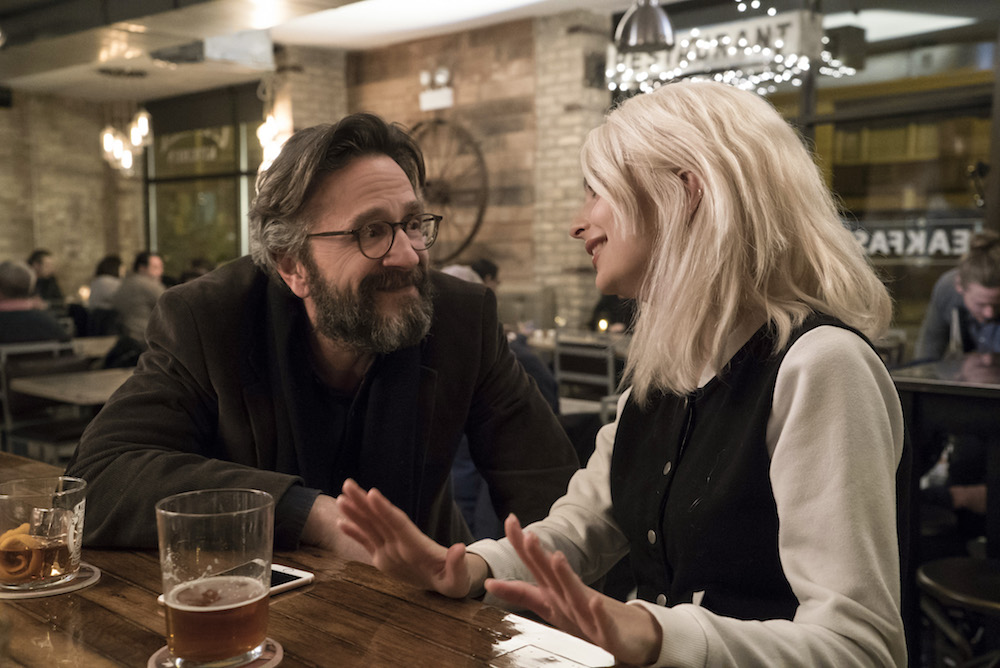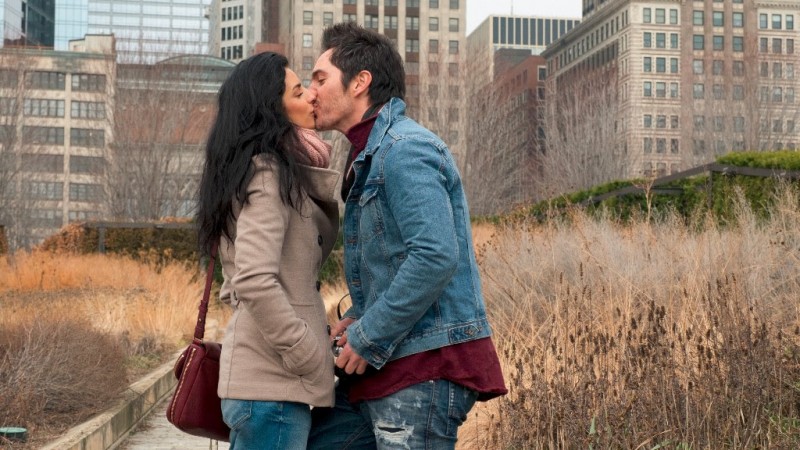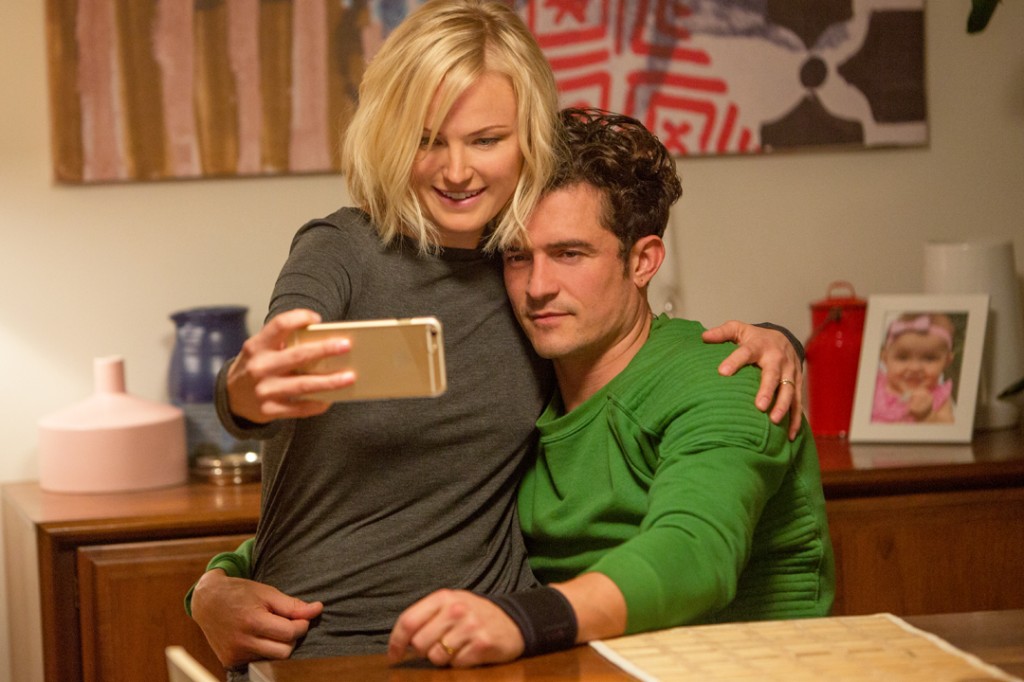Easy is an appropriate title for Netflix’s latest: A modest, introspective cocktail hour of a show that will lead into the all-night rager that is Luke Cage. Created by mumblecore maven Joe Swanberg (Digging For Fire, Drinking Buddies, Hannah Takes the Stairs), each episode of the anthology series focuses on simple, personal stories about relationships in varying stages and states of distress. Because of its mostly anthological nature (episodes are occasionally connected by minor threads, but one of them gets a straight-up sequel), Swanberg’s able to attract people who would otherwise be unavailable. That doesn’t mean he packs each episode with star power, though; his biggest “gets” are probably Dave Franco, Malin Ackerman, Gugu Mbatha-Raw, Hannibal Burress, Jake Johnson (best known for New Girl but a Swanberg vet who starred in Digging For Fire and Drinking Buddies), and Aya Cash (You’re the Worst). Swanberg’s ambitions are as low-key as his title suggests.
The low-budget DIY stylings of the show brings a certain amount of morose, unpleasant baggage to the table that’s carried from mumblecore’s somewhat checkered past. However, Swanberg is a smart enough writer/director to dodge the worst tropes of his trade. The very first scene of the show involves a guy picking a fight over a study that finds that couples in gender-normative roles have more sex. (It’s the inciting incident for the episode’s story, in which a working mom and stay-at-home dad realize their sex life has indeed come to an awkward standstill.) The debate bristles with character and improvised energy, with people overlapping each other to offer their own theories on why that might be. If it feels familiar, if it seems to be setting up for another tale of domesticated white people in their 30s or 40s trying to hide how miserable they really are, it at least feels alive.
Sure enough, that particular episode is textbook mumblecore in premise, but unspools with yacht rock smoothness in practice. Swanberg’s casual style allows him to underplay the dramatic beats so he doesn’t rub your face in the underlying angst of the story, while surprising you with just how funny or even erotic it can be. (To be sure, it can get very, very erotic. Almost none of the sexual content—if any—feels exploitative, however. The sex provides important information about the characters it involves and/or sets up a solid foundation for their motivations, which I thought was deeply impressive.) Meanwhile, the thirty minute runtime keeps everything moving, leaving the story with no time to puff itself up and pretend that it’s more consequential than it is.
Once that story’s down, Swanberg switches to his next one, about a black lesbian woman who falls for a hippie chick and tries to mold herself around her lifestyle. A later episode centers around three Latino characters, with 90% of the dialogue in subtitled Spanish. To be clear, parity is hardly achieved here. But while he probably shouldn’t get a cookie for it, it’s still a bit of a relief to see Swanberg, given a chance to tell eight unique short stories, attempt other perspectives besides “straight white people.”
Having said that, there are common social threads here that some audiences might be tired of: the characters tend to be artistically or semi-artistically inclined, living comfortable lifestyles (bohemian-chic at worst), in many cases feeling a little suffocated by them and looking for some sort of escape. If you’re completely over such stories, seek life elsewhere; Easy has nothing for you (unless maybe you’re a big fan of some of the talent involved). If you’re merely skeptical, though, I’d argue that Swanberg and the actors he gets do a great job of making that particular dull throb of angst feel real and immediate. There was never a point where I was watching these stories and thinking, “What assholes, I don’t have a reason to care about any of this.” The closest I came was during the second episode, only to run into a remarkable reversal after the asshole character in question actually started talking about the feelings and insecurities that led to her assholish behavior.
That’s maybe the most important thing about the show: because Swanberg isn’t stretching these stories to eight hours or two hours or even one hour, there’s no incentive to drag out any of the associated drama, and that means he can have characters figure out their problems by actually talking to each other. The third episode, “Brewery Brothers,” is a great example of how effective that tactic is. The premise is like something lifted out of a ’90s comedy: bored office drone (here played by Evan Jonigkeit) teams up with his stoner brother (Dave Franco) to start an underground brewery behind the back of his pregnant wife (Aya Cash). Just hearing a premise like that, your mind starts to form a checklist of things to expect upon the third act turn; for instance, there will be a rift between the uptight main character and his dumbass brother. The wife will discover the brewery in dramatic fashion and lash out at the main character. There is a big event that will provide a perfect opportunity for the main character to heal his broken relationships and embarrass some kind of antagonist. Main character learns to be less uptight, brother becomes less of a dumbass, the marriage is saved, and after one last joke, “Groove Is In the Heart” blasts over the end credits. Swanberg plays to a lot of those expectations, but when the time is right, he circumvents them in surprising fashion and finds his way to a satisfying conversation between husband and wife. And because he feels like showing off, he turns that reveal into one of the funniest scenes of the show. Revolutionary? Hell no, but by God, is it refreshing.
On the other end of the spectrum is “Utopia,” wherein a husband and wife (Orlando Bloom and Malin Ackerman) decide to join Tinder together and look for a threesome, only to discover that their baby’s music teacher (Kate Miccuci) might be interested. What follows is something of a polyamorous take on a romantic comedy, wherein a married couple with a strong rapport work together to figure out how to close the deal on a friend they’re mutually attracted to. It’s worth noting that Bloom—singled out here in a sea of wonderful performances only because he was once the de facto poster boy for “medium talent coasting on good looks”—has never been so loose and natural. It’s a joy to watch him, Ackerman, and Miccuci talk through the awkward questions that come up: Is everyone really on the same page? Will I make the person I love jealous? Could this ultimately ruin the friendships we already have? How the hell do we get her past our babysitter? It’s hard to call “Utopia” something like “ingenious” when it’s as slight as the other stories in this anthology, but I can honestly say it’s the only episode I’d be willing to see expanded into a 90-minute movie.
These two stories, and all the stories that fall between them, are about the importance of communication in the face of the challenges life throws at us. Relationships are made “easy,” or hard, by our ability to talk about those challenges with each other. To some, that may all sound pretentious or obvious, but Swanberg embraces the minor nature of his stories and imbues them with a casual humor and approachable spirit that could satisfy all but the most jaded or least adventurous. Luke Cage is days away, and it’s guaranteed to be a rollicking time. For those who are willing to balance their badass superhero shows with small, handmade stories, though, a show like Easy could be just the thing to cleanse the palate.
Easy is now streaming on Netflix.




